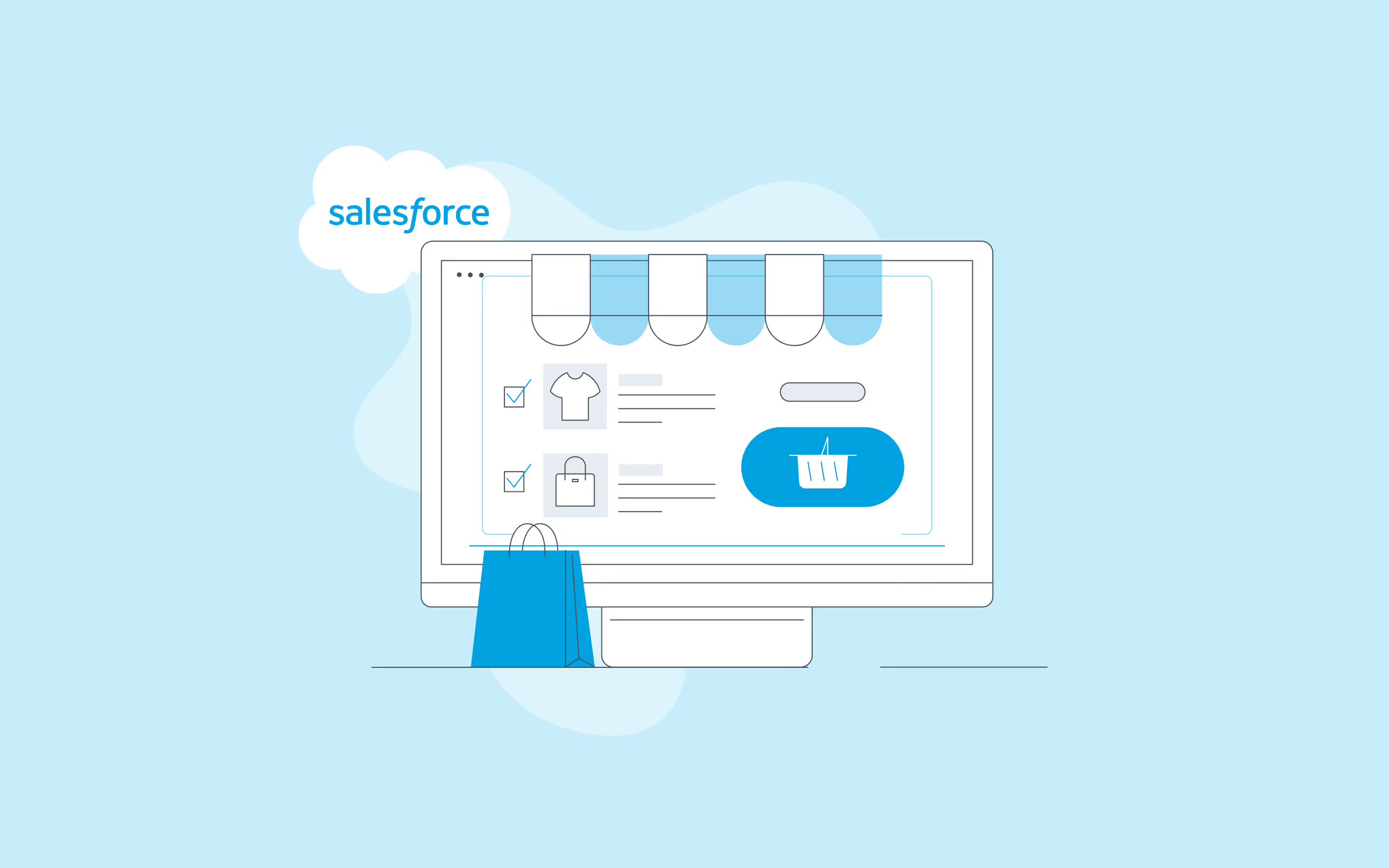

5 min read
•
Salesforce
•
August 8, 2025
Why Salesforce Commerce Cloud Is Still the Best Enterprise eCommerce Platform
SFCC in 2025: Enterprise Stability Meets Composable Flexibility
Salesforce Commerce Cloud (SFCC) has evolved from its Demandware roots into a modern enterprise platform capable of powering fully composable, headless storefronts. Today, leading brands pair SFCC’s robust backend with modern front-end frameworks like Next.js and Vercel and headless CMS platforms such as Contentstack or Amplience to unlock faster performance, better developer agility, and richer customer experiences.
64Labs is the global leader in composable SFCC builds, delivering projects for enterprise retailers such as Horizon Hobby, Moncler, Sweaty Betty, and Duluth Trading all with measurable performance and revenue gains.
A Quick History of SFCC
Salesforce acquired Demandware in 2016, gaining one of the most mature cloud-native commerce platforms on the market. At a time when competitors still relied on on-prem or heavily customised systems, Demandware offered scalability without infrastructure headaches.
While its CMS and search were limited in those early years, its stability, global readiness, and proven operational model made it the Porsche of eCommerce platforms - engineered for performance, enduring in design, and able to stay relevant as the world caught up.
What Salesforce Commerce Cloud Is Today
At its core, SFCC remains a stable, scalable SaaS commerce engine. It handles:
- Product catalog and pricing logic
- Promotions and inventory management
- Complex checkout workflows
- Multi-brand and multi-region orchestration
The real shift in recent years? SFCC now fits seamlessly into composable architectures, enabling brands to swap in best-of-breed tools while retaining a bulletproof commerce core.
From SiteGenesis to SFRA to Composable
- SiteGenesis – Legacy server-rendered architecture, fast for its time but inflexible and hard to maintain.
- SFRA (Storefront Reference Architecture) – Introduced modularity, responsive design, and cleaner code for the monolithic era.
- Composable Storefront – Built on modern JavaScript tooling with PWA Kit, SCAPI, and API-first integration, allowing front-ends on React or Next.js to be deployed on platforms like Vercel.
This evolution lets enterprise teams:
- Improve site performance dramatically
- Control their own front-end release cycles
- Integrate modern tools like Algolia for search or headless CMS for content
Why Composable SFCC Works for Enterprise Brands
Salesforce Commerce Cloud shines when:
- Running multi-brand portfolios with shared components
- Managing global pricing, tax, and inventory logic
- Integrating with complex ERP, CRM, and marketing stacks
- Passing stringent enterprise security and compliance requirements
When paired with a composable approach, SFCC gives brands backend stability and frontend freedom - the best of both worlds.
The Limits and How to Overcome Them
SFCC’s native CMS and search still lag behind best-in-class options. That’s why most of our composable builds integrate platforms like Amplience or Contentstack for content, and tools like Algolia for search.
Pricing can be a sticking point, but in 2025, negotiation flexibility is far greater - especially if you have the right partner guiding your roadmap.
Final Thoughts
Salesforce Commerce Cloud has come a long way since the Demandware days. It’s no longer just a managed backend for templated storefronts. It’s evolving into a flexible foundation for composable architectures, with room to plug in modern tools and scale globally.
For teams who need stability but don’t want to sacrifice flexibility, SFCC remains one of the few options that can support both. But to unlock its full potential, the architecture around it - including frontend, CMS, and integrations - needs to reflect modern composable thinking. And to get that, you need a partner that really lives this stuff. 64labs is far and away the leader in composable on SFCC. If you aren't being asked to bring us into conversations about your composable roadmap in some form someone isn't doing their job.
Thinking about building a composable storefront on Salesforce Commerce Cloud? We’ve helped some of the biggest names do it right. Let’s talk.
Read more

July 15, 2025
AI & Automation
How AI Is Being Used in E-Commerce And Who’s Doing It Right

July 15, 2025
Composable
Ecommerce
How Does Composable Help Marketers and Merchants

July 15, 2025
Composable
Ecommerce
Monolithic vs. Composable Commerce: Which One Actually Lets You Move
